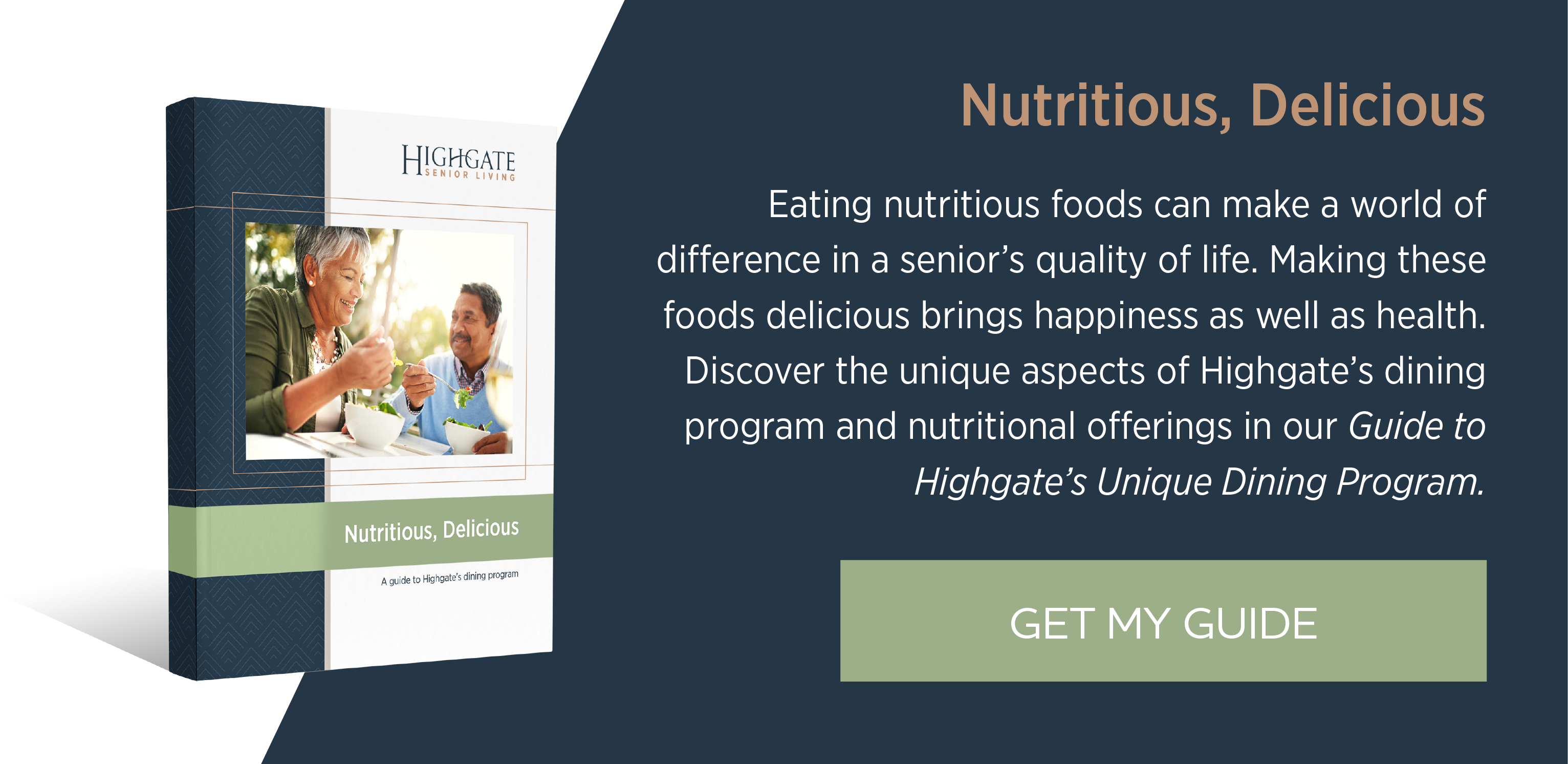 Our relationship with food is so much more than just a need for calories. The fact we even have a “relationship” with food is telling enough.
Our relationship with food is so much more than just a need for calories. The fact we even have a “relationship” with food is telling enough.
We don’t eat just to survive; we also eat to socialize. We eat to celebrate. Our moods determine our food choices: a steak dinner to celebrate a promotion; a carton of ice cream to cure our wounded feelings.
However, the tie between food and feelings is not a one-way street. Scientists are beginning to understand how the reverse is also true, that our food choices determine our moods. So, while the cake, salty chips and red meat might taste good right now, it will drag you down later. And more than just mood, diet plays a role in disease risk and physical health as well.
While that emphasizes the need for working adults to make healthful food choices, where does it leave older adults who are choosing an assisted living facility where meals will be prepared for them? It means they need to pay close attention to the menus and cooking philosophies of the facilities they visit and consider the effects food offered will have on nutrition for seniors.
There are a lot of components to a healthy lifestyle, with diet being just one of them. And even in the realm of diet, there isn’t just one healthy way to eat. Rather than looking for one must-eat item on the menu, keep in mind these guidelines for seniors as they evaluate their next potential home.
Limit Portion Size, Sodium, and Saturated Fat
In a study of college students, researchers found that the number of calories, sodium and saturated fat study participants ate two days beforehand affected their mood that day. The better they ate before, the better they felt later. Another study found that seven or more servings of fruit predicted an improved mood the next day.
Those findings fit well with the Center for Disease Control and Prevention’s recommendation to, among other things:
- Avoid eating too many calories
- Consume less than 10 percent of calories from added sugars
- Consume less than 10 percent from saturated fats
- Limit sodium to 2,300 milligrams per day
- Don’t drink too much and exercise often.
To do so, look for menus that incorporate a variety of food and hit all of the major food groups: vegetables/legumes, fruit, lean protein, grains and dairy.
Don’t Get Sweet
Sugar calories are empty calories, they provide energy but no essential vitamins or minerals. They also wreak havoc with your mood by spiking, then crashing, your blood sugar levels.
The risk you run with sweets is more than just an irritable evening. A diet high in refined sugar increases your risk of dying from heart disease.
Look for an assisted living community that has an easy supply of fresh-cut fruit rather than fresh-baked cookies.
Staunch the Starches
Refined sugar is just one of the culprits when it comes to yo-yoing blood sugar. Other refined starches, such as white flour, cause similar fluctuations. These foods all rank highly on the glycemic index, which is a measure of how fast and how much they cause your blood sugar to rise.
All food provokes a rise in blood sugar, but a lower, slower response from food that takes longer to digest, such as legumes, vegetables and whole grains, is beneficial. Those foods keep you feeling fuller longer and help ward off Type 2 diabetes, which is a particular concern for elderly adults as the risks of developing the disease rises with age.
Fruit juices are a mixed bag. Juice — if it’s not just high fructose corn syrup in a glass — still carries much of the nutritional benefit of the fruit with it. But it doesn’t carry any of the fruit’s slow-to-digest fiber, which makes it high on the glycemic index.
Don’t Overestimate Your Willpower
That’s particularly true when you consider that, in social settings, studies show that people eat what they see others eating and how much they see them eating it. You might think you can resist indulging in the sugar cookies and red meat if there’s salad and fruit to choose from. But research says you won’t.
So, as you look for an assisted living facility that might be right for yourself or a loved one, don’t just pay attention to the palatability of the food. Examine its quality. Good food will improve your physical health and mental health.
It’s something to chew on.
Sometimes being motivated to cook for one, or having the ability to do so can get in the way of living a happier, healthier lifestyle. If you're loved one could benefit from improved nutrition, but cooking at home is difficult, take a look at our signature dining program.






